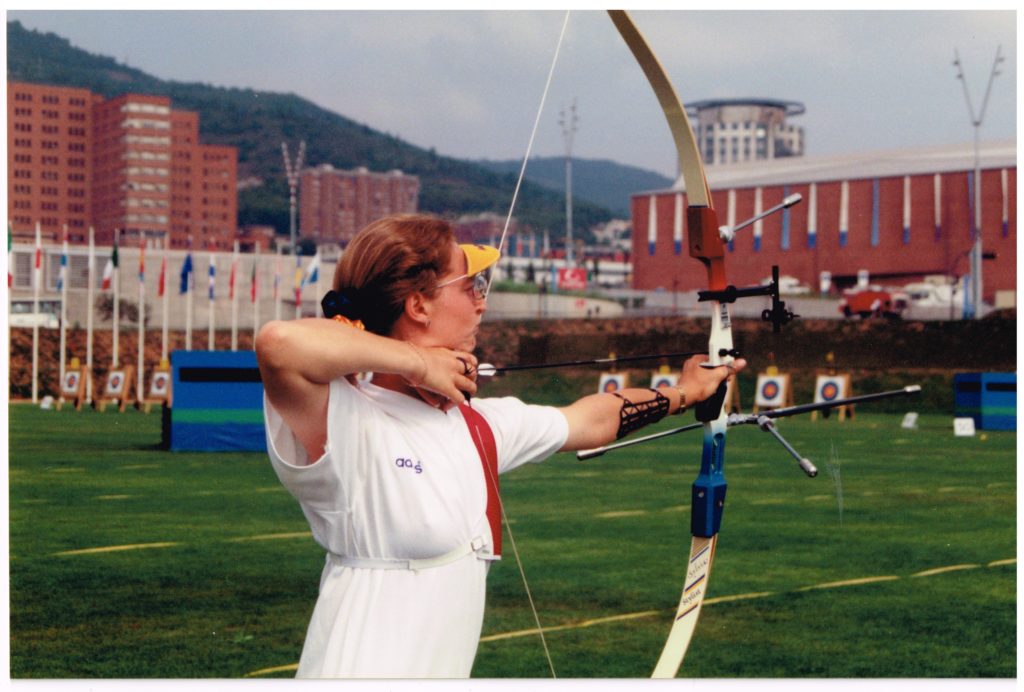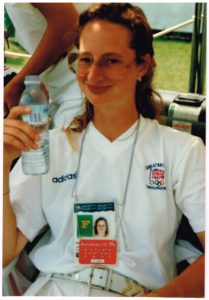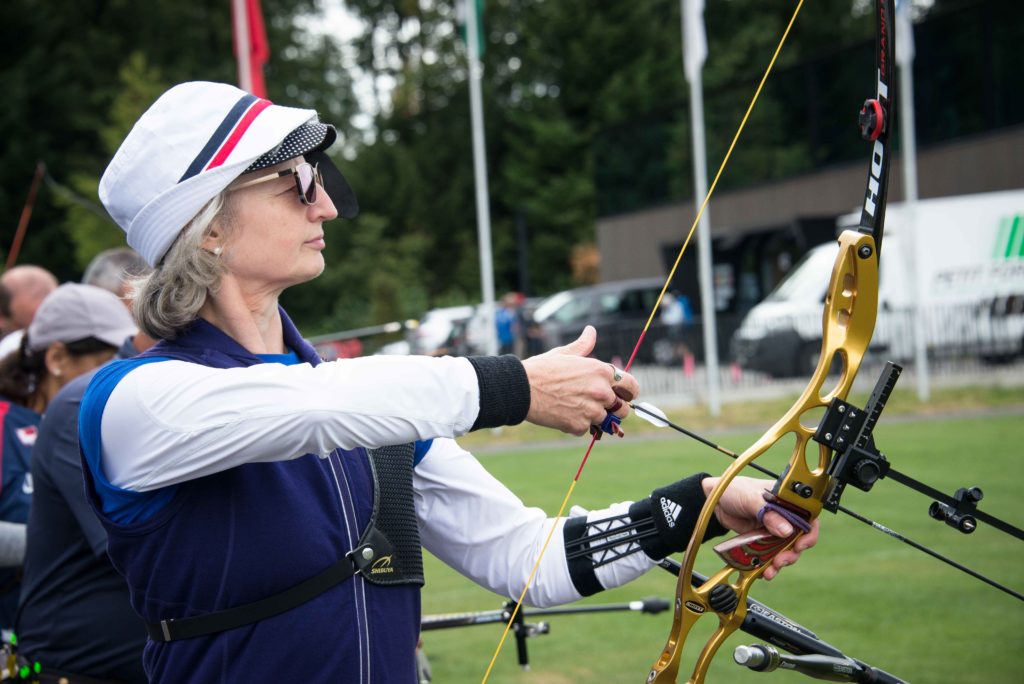
Sylvia Harris shooting at Barcelona’92
Part of the series catching up with former elite archers.
Sylvia Harris shot for Great Britain at the 1992 Barcelona Olympics, on the team with Alison Williamson and Joanne Edens. We spoke to her at the Lausanne World Masters.
I started when I was ten years old. I went to watch a friend to start with, then I though “oh, I’ll have a go”. I was lucky that there was a teacher at my comprehensive Alsager School: Mr. Wales, who had an interest in archery, and there was an out-of-hours club. I started to do well as a junior, under 13 and then under 16. I got noticed a little bit, and eventually started doing well as a senior.
Then I got invited for squad training and so on. It started off at Stoneleigh then, before it moved to Lilleshall. I got coaching then from Barry & June Farndon, and it was them who straightened me out and got me to the higher national level.
I took a year out before I went to university in ’84, because I wanted to make the Olympic team then [for L.A.], but I came fourth, so I was the reserve. I didn’t like that very much. In ’88 I was deep into my architectural studies, so I didn’t quite have the time I would have liked to make a run at the team.
In ’92 there was still a lot of competition to make the Olympic squad. I had a part-time job, so I could shoot a few days per week. There was no funding then. To be eligible for the Olympic team, you had to shoot above 1260 on a FITA round, and myself and Jill Newland were neck-and-neck all the way in the shootout for the third spot. I came third on the day and made the team. But it was good knowing you were there by right, as it were. It was self-selecting, really.
The Olympics was something I’d always wanted to do. We went to the opening ceremony – in those days archery wasn’t first on the schedule, so you weren’t competing the next day. It was the year the archer lit the Olympic flame, which was very special. We’d heard rumours archery was going to be involved [in the opening ceremony] but we didn’t know what was going to happen. It was a magical moment.
I remember shooting reasonably well for the standard of the time, but still coming nowhere. After the 70m round the Koreans had put in a world record. That’s when you realised that the standard at world level was something else. I shot well at 60m for me, though, and I didn’t think I let myself down. Which made me want to be better. It was the first year of the head-to-head rounds, although we hadn’t really practiced matchplay at the time. I was 46th, and the cut was only the top 32.
The great thing about Barcelona was supporting the GBR men’s team. Seeing them get their medals was a great feeling. Simon [Terry] shot really well. He beat Jay Barrs, which was unexpected. Well, unexpected by Jay, anyway. The crowd were booing him.
I made the team for the World Championships in ’93 [in Antalya]. I was striving to get better, but I got worse. And I’ve been trying to find my feet ever since [laughs]. I qualified as an architect in 1996. There’s similarities; it can be quite technical, and it’s an art as well as a science. But I’m never giving up archery. Apart from shooting, I was the competitors representative on the BOA for a little bit, and I’m an honorary life member of the British Wheelchair Archery Association, mainly from helping out at with the Stoke Mandeville Tournaments for many years. I was also a Gamesmaker at London 2012, on the field of play; it was me, Alison Williamson’s mum and dad, and [former GB Paralympic team manager] Anne Webb – we were a little team.
The beauty of archery is that it’s for all ages and you don’t even need to have two arms to shoot. It can be with you all through your life. From junior, right through to the end, as it were.
Archery’s a part of me, it’s part of my life. It feels satisfying. And it’s elusive. It’s difficult to master it, to do it well. It’s easy to pack up, when you’re having difficulties. But it’s not been in my nature to give up on things. The searching for it has meaning. I’ve had bad patches, but I’m still doing it.



